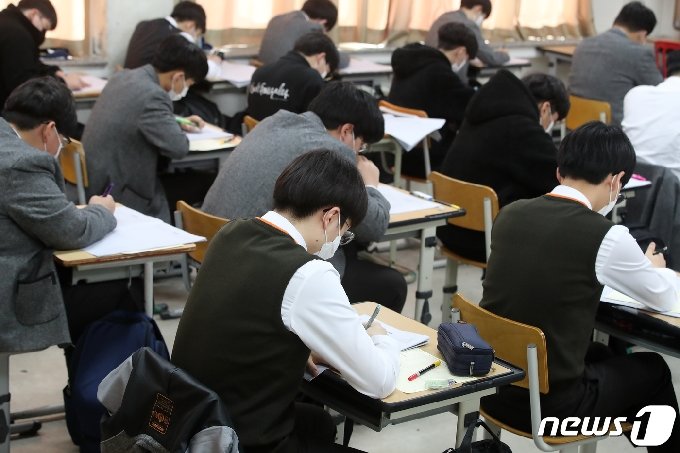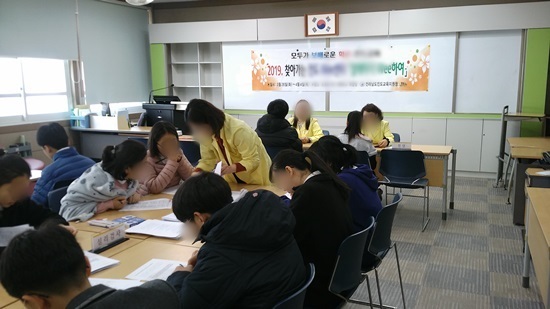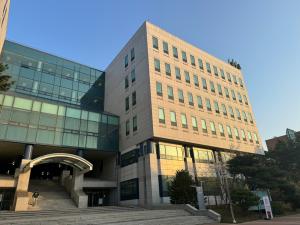Where was the place where you spent most of your time when you were a teenager? Most Korean students would answer ‘school,’ spending their time almost 8 hours at least. It is a place for students to both learn and experience society. While going through teenage life, there are times that they cannot control their emotions when having friend issues or coping with their stress. There would be much time even after they grow up, and they must deal with their stress problems. But schools in Korea teach students neither how to overcome their feelings nor handle the frustrations of the intense education system. Rather, they are focusing on aiming for students to enter prestigious universities, setting aside students’ mental health. In my opinion, schools should make counseling programs compulsory in order to make Korean teenagers’ lives much happier.
Teenage is a period of transition between childhood and adulthood, going through many changes, mentally and physically. More specifically, the adolescent’s prefrontal cortex, the frontal part of the brain, is less mature than the adult’s brain. This prefrontal cortex functions to think carefully, plan, understand, and reflect. The immature part of their brain makes teenagers much more sensitive to emotions and instincts and which can result in bipolar symptoms. These not fully formed brains can change networks and personalities as they adapt to the external environment. If adequate programs are available for them in schools, teenagers who experience severe tension and confusion due to instability of physical and emotional changes must be able to control their feelings.
 |
| ▲ High school students are solving exam questions. (Photo from Money Today) |
Nevertheless, many teenagers in Korea currently suffer from mental illnesses. According to Yonsei University Institute for Social Development Studies and Korea Bang Jeong-hwan Foundation, the subjective happiness index of young people in South Korea was 79.5, which ranked the lowest among the 22 OECD member countries surveyed. A recent study by Statistics Korea also found that 25.2 percent of middle and high school students suffered from depression in 2021. This statistic shows that approximately a quarter of Korean students have had mental issues.
Despite these teenagers’ mental issues, there are not many obligatory counseling programs for teenage students. There is an existent student counseling program called ‘Wee Class’ at school, which includes personal, group, and specialization programs operated by professional counselors during break time, lunchtime, and even after school. Yet, in reality, the program is not operated effectively because the students hesitate to take the therapy due to its opposing views. If such programs become mandatory for everyone, no one will see others getting treatment in an unfavorable way. As the effect of mandatory counseling appears, the prevailing prejudice against counseling programs will soon disappear and be considered positively. Many teenagers with a positive experience of getting therapy would not be reluctant to get treatment whenever they are stressed out or suffering from depression. Parents might be the ones who might concern about their children who get therapies. They might think it is time-consuming to take the courses, but it is the other way around. They might say that students must study rather than spend time on counseling. Nevertheless, studying will pay off when one’s mental stability has been prioritized. In addition, students will get to focus on studying more likely if the students get to control their own emotions and get over mental illnesses such as depression.
On top of this, counseling can empower teenage students and support them in getting a sense of confidence. Some types of counseling programs would assist students in knowing what they like and what makes them happy, which can eventually help in their career setting. According to the Korea Youth Policy Institute's "2018 International Convention on the Rights of Children and Youth: Survey on Human Rights of Children and Youth," 33.8 percent of teenagers said they had thought they wanted to die over the past year. 37.2 percent of them answered it was because of academic problems which was ranked as the highest. Anxiety about the future was the second answer. The change will happen gradually when the counseling program becomes obligated.
 |
| ▲ Students are taking a program at the Wee Class center. (Photo from Sky Daily) |
According to Statistics Korea, suicide remains the number one cause of adolescent death, and the rate at which it takes place continues to rise. The teenage suicide rate has jumped from 35.8 percent to 50.1 percent over the past ten years. To overcome this situation, schools in Korea should make psychological education required so that teenagers can relieve their stress and control their feelings of depression. Controlling one's destructive emotions isn’t something that can be done individually. By making everyone take a student counseling program mandatorily, teenagers will upgrade their life satisfaction by getting through their stress. Learning how to control their feelings and knowing who they are will make them much more substantial people. Through this, I hope it can eventually lower teenager suicide rare in Korea. I anticipate everyone who is mentally struggling to live better lives by getting therapy at schools or nearby counseling centers.
Lastly, these problems might persist even after high school. If you need any help and looking for some adult counseling program, you can call 1577-0199 (Mental Health Center Crisis Counseling) any time. You are not alone, and we are not alone.
김지원 dankookherald@gmail.com






